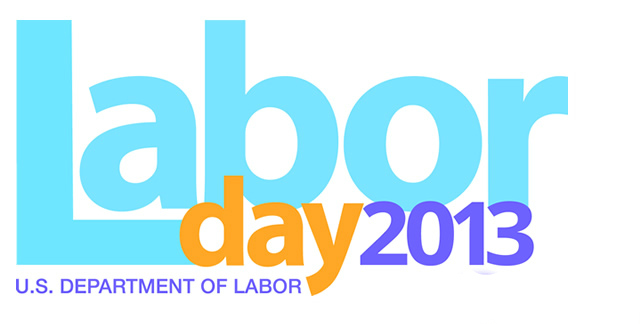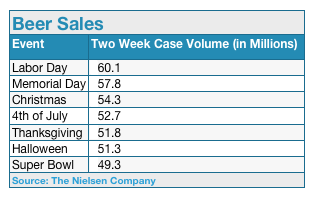
Labor Day, the first Monday in September, is a creation of the labor movement and is dedicated to the social and economic achievements of American workers. It constitutes a yearly national tribute to the contributions workers have made to the strength, prosperity, and well-being of our country.
The first Labor Day holiday was celebrated on Tuesday, September 5, 1882, in New York City, in accordance with the plans of the Central Labor Union. The Central Labor Union held its second Labor Day holiday just a year later, on September 5, 1883.
In 1884 the first Monday in September was selected as the holiday, as originally proposed, and the Central Labor Union urged similar organizations in other cities to follow the example of New York and celebrate a "workingmen's holiday" on that date. The idea spread with the growth of labor organizations, and in 1885 Labor Day was celebrated in many industrial centers of the country.
The first state bill was introduced into the New York legislature, but the first to become law was passed by Oregon on February 21, 1887. During the year four more states — Colorado, Massachusetts, New Jersey, and New York — created the Labor Day holiday by legislative enactment. By the end of the decade Connecticut, Nebraska, and Pennsylvania had followed suit. By 1894, 23 other states had adopted the holiday in honor of workers, and on June 28 of that year, Congress passed an act making the first Monday in September of each year a legal holiday [with the bill signed into law by President Grover Cleveland].
—U.S. Department of Labor
Labor Day may be our national tribute to the contributions of American workers, but it's also the nation's top beer-drinking weekend, maybe fittingly so. In 2011, more than sixty-million cases of beer were sold during the Labor Day holiday period, more than during any other. The
Super Bowl, in comparison, came in at the seventh spot.
1
During all of 2012, 200,028,520 barrels of beer were sold in the United States. '
Craft' breweries
2 were an important part of that, accounting for 13,235,917 barrels of beer sold, produced by 108,440 laborers. That's 6% of the total beer sold and nearly 1% of the total of 136,038,000 jobs in the U.S.
On average, American 'craft' breweries employ 43 workers apiece. And, according to the
U.S. Small Business Administration, small businesses of less than 500 employees account for around half the U.S. GDP (gross domestic product) and more than half of the employment in the U.S.
3
Congress is taking notice of 'craft' beer's contributions. Mark Warner, U.S. Senator from Virginia, recently became the
32nd Senator to co-sponsor
Senate Bill 917, the
Small Brewer Reinvestment and Expanding Workforce Act [emphasis mine], in the 113th Congress, joining the area's earlier co-sponsors, Maryland Senators Benjamin Cardin and Barbara Mikulski.
4
Declaring that “craft beer is ultimately bipartisan,” U.S. Senator Mark Warner [D-Virginia] announced his support for the Small Brewer Reinvestment and Expanding Workforce Act (Small BREW Act – S 917) at a meeting with Virginia small brewers [on 22 August 2013]. Following a tour of Richmond, Virginia's Hardywood Park Craft Brewery, the Senator sat down with a number of Virginia's small brewers to discuss business issues and the opportunities and obstacles they face in what is still a challenging economy. Although Virginia’s craft beer community has seen strong growth, the Senator’s support for the federal small brewer excise tax recalibration legislation underscores the fact that, even amid the excitement and growth in the industry, decreasing the tax burden on these small breweries will ultimately enable them to expand, hire additional employees and reinvest in their businesses to the benefit of their local communities.
—Brewers Association
Today, take a moment to honor American labor: the engine of American capitalism. And, not to be polyannish, take a moment to consider what the American Labor movement has helped to secure for
most American workers —whether unionized or not: the forty-hour work week, the eight-hour day, minimum wage standards, paid vacation, paid health insurance, paid holidays (like today), the weekend, and the abolition of child labor.
Of course, much remains undone and much has become un-done. As past Secretary of Labor
Robert Reich writes, "On Labor Day weekend we should instead be testing the nation’s resolve to provide good jobs at good wages to all Americans who need them, and measuring our credibility by the yardstick of equal opportunity."
But, back to beer, and, more appropriately on this day, to those who make it.
Formed in 1876, the
National Union of United Brewery Workmen was one of the first unions in the United States. Later known as the
International Union of United Brewery, Flour, Cereal, Soft Drink and Distillery Workers, it merged with the
Teamsters in 1973. Nowadays, the majority of American 'craft' brewery employees are
not union members; the majority of employees at the large foreign-owned 'American legacy' breweries (such as Anheuser-Busch InBev, MillerCoors, etc.) are.
I was asked recently why I write this blog. My answer had 108,440 reasons: those one-hundred and eight-thousand, four-hundred and forty laborers who work at the 2,483
American-owned 'craft' breweries. Many of them are honoring Labor Day, today, by working: yeast never takes a holiday. I try to honor them by telling their stories.
You too can honor American 'craft' brewery workers, today, and ever day. It shouldn't be too difficult. Drink a 'craft' beer.
-----more-----



.png)












